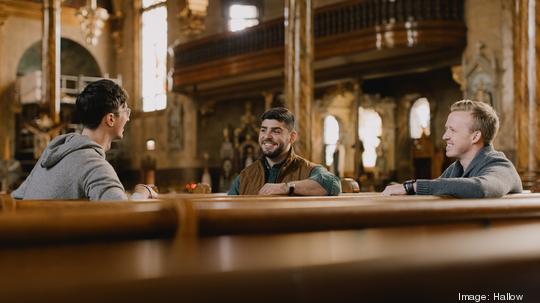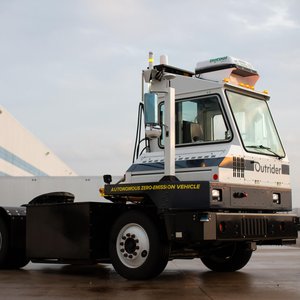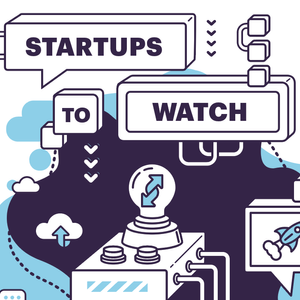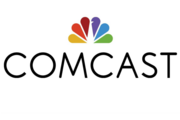
In a now infamous 2022 Super Bowl ad, "Seinfeld" co-creator Larry David voiced his skepticism for crypto firm FTX, casting doubts on cryptocurrency as the latest in a long string of ideas he's discounted, like the wheel and the lightbulb.
"I don't think so," David's character says as he's presented with FTX. "And I'm never wrong about this stuff."
The ironic aftermath of that Super Bowl spot and FTX has been well documented. FTX went bankrupt, and its founder Sam Bankman-Fried was convicted of fraud, conspiracy and money laundering. David himself said he was "an idiot" for taking part in the ad.
FTX was one of several cryptocurrency companies to pony up big bucks for Super Bowl ads in 2022, which was dubbed by some as the "Crypto Bowl." Those firms were riding the highs of the cryptocurrency market, and the broader tech and venture-capital market overall, which had pumped startups with record amounts of venture capital in 2021.
It's been a different story for startups in the years since, as funding has dried up and layoffs and shutdowns mark a turbulent time for venture-backed upstarts. But that didn't stop Hallow, an 85-person Catholic prayer app based in Chicago, from running a Super Bowl ad in 14 of the largest U.S. markets.
Hallow's 'huge swing'
Running a Super Bowl ad isn't something Hallow CEO Alex Jones ever really considered. But the startup, which raised a $50 million funding round last year, discovered this year's Super Bowl had fortuitous timing. The game happened to fall on the Sunday before Ash Wednesday, the start of Lent, which is something that only happens about every 10 to 15 years, Jones said.
For Hallow — an app that offers audio-guided prayers, meditations, Bible readings and music — Ash Wednesday and the season of Lent are, for lack of a better word, the startup's Super Bowl.
"Ash Wednesday is a massive day," Jones said. "It’s like 100X a normal day. It’s a massive spike."
With an opportunity to get its app in front of millions of potentially new users in advance of Ash Wednesday, the startup put together a 30-second ad featuring Mark Wahlberg that aired in 14 major cities, about half of CBS's Super Bowl viewing audience, Jones said. He declined to say how much the company spent on the ad, but he said it was less than the reported $7 million companies had to pay to run a full national 30-second commercial during the Super Bowl.
The payoff was near instant. Between Super Bowl Sunday and Ash Wednesday, the app grew from 14 million to 16.5 million downloads, netting 2.5 million new users in four days. It spent 24 hours as the No. 1 free app in the Apple App Store, even climbing past Temu, which spent millions airing ads six times during the game.
"We’re a small startup, certainly relative to the startups in the past that have done something like this," Jones said. "And it’s obviously a huge swing.
"(Two years ago,) a bunch of startups had a bunch of cash and were trying to grow at all costs; it was an opportunity for them," he added. "For us, we’ve always been focused on being responsible with our economic model, both in good times when the market is doing well, and in bad times."
Hallow, which offers a free app but also drives revenue through a subscription model, wouldn't have been in a position to run the ad if its business wasn't on solid footing, Jones said.
"We were lucky enough to have been prudent enough with our own economics to be able to (run the ad)," he said. "Certainly if there was a world where we're on the edge of running out of money, then we would not have done it."
Jones declined to share Hallow's revenue figures, but said its business was doubling year over year.
The Super Bowl risk and reward for startups
Startups are no stranger to Super Bowl ads, dating back to the dot-com boom when smaller brands like Pets.com splurged for prime time Super Bowl spots.
But Pets.com, a victim of the early 2000s tech bubble, is indicative of how running a Super Bowl ad is by no means a slam dunk for startups.
"There have been lot of startups on the Super Bowl over the years, but their track record hasn’t been terrific," said Tim Calkins, associate chair of the marketing department at Northwestern University's Kellogg School.
Groupon, for example, had to apologize for its 2011 Super Bowl ad that appeared to insult Tibetan refugees. Groupon, at the time, was one of the fastest-growing companies in history and had just turned down a $6 billion offer from Google. The Super Bowl spot was a chance to get its deals app in front of consumers before its initial public offering later that year. But the $3 million commercial was widely panned and the company pulled the ad campaign later that week.
Vacation rental marketplace HomeAway also had to apologize for its 2011 Super Bowl ad that featured a rubber baby smashing into a glass wall. The spot was widely criticized, as viewers felt it crossed a line.
Beyond running an ad that could offend the intended audience, smaller brands face the challenge of standing out amongst a cluttered group of household-name brands, Calkins said.
"To introduce a new brand it isn’t so easy. You have 30 seconds," he said. "You have to be very entertaining to keep up with all the other spots. But you also have to get the basics across ... It's a little easier for a brand like Doritos. You don't have to explain to anybody what Doritos is."
Measuring the effectiveness of a Super Bowl ad and determining if the cost was worth it isn't easy for brands. There's no single metric that will tell an advertiser if a Super Bowl ad worked. But startups do have one advantage, Calkins said.
"The new brand can measure things like brand awareness," Calkins said. "They can see where brand awareness was before the Super Bowl and where it was after the Super Bowl, and did that maintain over time."
Poppi, a venture-backed soda startup in Austin, Texas, ran a Super Bowl ad this year and said it saw huge spikes in social-media engagement and Google searches. The startup said its Google search volume was up 100 times compared to the hour before the ad aired.
The Super Bowl remains an unrivaled live TV experience for brands, Calkins said, who noted there's "nothing close to it in terms of reach and attention." For a smaller brand looking to quickly get its name out there, it's an expense some companies can justify.
"When you really want to reach a huge number of people quickly, there's really no other place to go if you want to build your awareness," he said.
The Swift bump
The 2024 Super Bowl became the most-watched telecast in history, with 123.4 million average viewers. The high viewership numbers are likely due in part to the closely watched relationship of mega pop star Taylor Swift and Kansas City Chiefs tight end Travis Kelce, which brought in a crop of viewers who may have otherwise sat out Super Bowl Sunday.
Swift's role in the game was not lost on Jones, who said in a debrief with the Hallow team last week that he "wanted to thank three people in order. First is God. Second is our team. And the third is Taylor Swift."
"Taylor Swift gets a lot of credit for helping a lot people pray and get closer to Jesus," he added. "We’re grateful."




